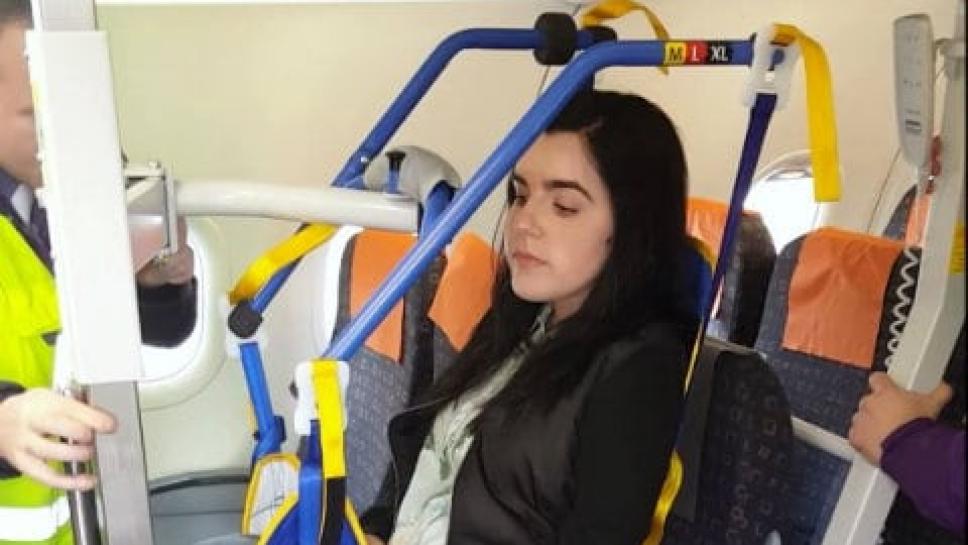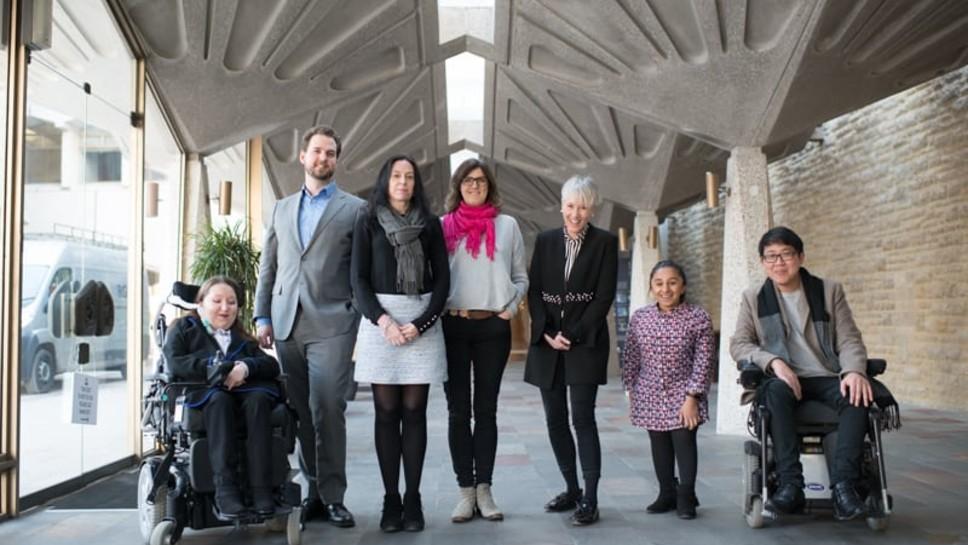Ministers are to consider a number of key Trailblazers Up in the Air campaign asks, including space for disabled toilets on aircrafts and priority storage for wheelchairs.
The Government are also considering the ability for wheelchair users to take their wheelchairs onboard the plane and travel in it.
Trailblazers went to the Flying Disabled Symposium last year, and have seen the prototype model of plane which would allow wheelchair users to travel in their wheelchair with comfort and dignity.
Aviation minister Baroness Sugg said
“We have to do everything possible to ensure passengers are put at the very heart of our aviation industry and the flying experience is a positive one for everyone boarding a plane.”
Our investigation, Up in the Air, into the accessibility of the air industry was sparked by repeated reports of disabled passengers receiving a second-rate service from airlines.
In 2008, legislation was introduced by the European Union to protect the rights of disabled passengers flying in and out of Europe. However, it has been 10 years since the regulation was implemented, and our investigation reveals that disabled passengers still regularly encounter barriers to a smooth and pleasant travelling experience.
Although some disabled passengers have had good experiences, most disabled passengers believe there is much that the airline industry needs to do before it catches up with other mainstream modes of transport.
Our report revealed:
- Six out of ten disabled passengers say their wheelchairs have been damaged when travelling with an airline.
- Six out of ten disabled passengers said they felt unsafe when they transfer from a wheelchair to an airline seat.
- Almost half of disabled passengers feel that airline staff who lift and carry them do not provide a good service.
- Nine out of ten wheelchair users are unable to use airline toilets and therefore have to avoid drinking before or during flights.
Trailblazers Campaigns Officer Michaela Hollywood said:
“We welcome this news from the Government.
Many of our Trailblazers have told us of the frustrating difficulties and lack of dignity they experience when flying. The difficulties start from booking tickets until you return home, impacting on the whole journey and experience.
Wheelchair users being able to travel in their own wheelchair is the ultimate goal, but in the interim the use of Eagle Lifters bridges a gap.
Trailblazers are committed to improving air travel for disabled people, and we look forward to continuing this work.”
You can read our report on air travel here.







